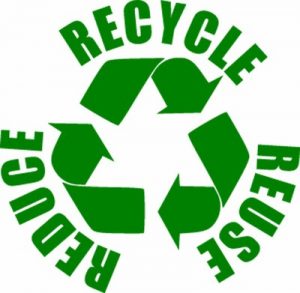Garbage Man
Former UMaine undergraduate found educational gold in heaps of trash
By Joe Rankin
For Travis Blackmer, the summer of 2011 was a summer of garbage. And it changed his life.
While classmates at the University of Maine were waiting tables, pounding nails, or painting houses to make tuition money, the 20-year old undergrad was pawing through trash. Tons and tons of trash.
But he didn’t really mind. After all, he was getting paid well, or let’s just say it was quite a bit more than minimum wage. “For a 20-year-old with no degree, I was pretty happy. I didn’t have any better summer job offers,” said Blackmer.
These days Blackmer is still working on trash issues as a part of a long-range effort supported by UMaine’s Senator George J. Mitchell Center for Sustainability Solutions to help craft a total makeover of the state’s “materials management” system, as the solid waste disposal system is now known.
 The trash analysis that got Blackmer interested in waste in a big way as an undergraduate — technically the Maine Waste Characterization Study — was directed by professor George Criner, the director of the university’s School of Economics, and paid for by a Maine State Planning Office grant. The aim was to determine how the composition of Maine’s household waste had changed in the 20 years since a comprehensive solid waste law went into effect.
The trash analysis that got Blackmer interested in waste in a big way as an undergraduate — technically the Maine Waste Characterization Study — was directed by professor George Criner, the director of the university’s School of Economics, and paid for by a Maine State Planning Office grant. The aim was to determine how the composition of Maine’s household waste had changed in the 20 years since a comprehensive solid waste law went into effect.
To accomplish the task, Blackmer and the other members of Criner’s team donned Tyvek coveralls, gloves and goggles. Over the summer and fall, they picked through 20,000 tons of garbage from 17 municipalities from Houlton to Ogunquit. They sorted it into 68 categories. There were big categories — paper, plastic, and glass, and sub categories of 11 kinds of paper — magazines, newsprint, mixed paper, cardboard and so on. There were even sub-sub-categories.
Going through peoples’ household trash isn’t glamorous by any means, but Blackmer found that the smell, which is one thing you might think would be bad, generally wasn’t. “But on hot days it was worse.”
For Blackmer, the experience getting down and dirty with trash was eye-opening. Up to that point in his young life he hadn’t given garbage much thought, beyond seeing it as, well, garbage.
But as the job went on he found himself amazed and intrigued by the topic he was delving into. Twenty percent of the trash they pulled out was recyclable, he said. Another 40 percent was compostable organics but it wasn’t being recycled or composted. “It made me think about what I throw away,” he said. “It made me wonder what’s the barrier” to diverting that 60 percent from the waste stream and putting it to use.
“I had thought that every little bit of garbage was useless, but that’s not the case. Some is easily recoverable, some is stuff that we could pull out but we don’t have a strategy yet for doing it, and for some we just haven’t figured out how to avoid using in the first place.”
His summer job of garbage has continued to shape Blackmer’s life, and the course of his academic career.
“Every time I had something to do for work or school I went to waste” for a subject, he said. He figures he’s done four to six major papers or projects on aspects of materials management in the process of getting his bachelor’s and master’s degrees. He had questions, for instance, about how citizens view Pay-As-You-Throw, where residents pay a fee based on how much garbage they create, and what happens to the waste that “evaporates” from the waste stream when total waste volumes are reduced but the difference can’t be accounted for through, say, recycling or reuse. So, he did a survey, turned the research into a paper, then presented his results at the Maine Resource Recovery Association’s annual conference this past April.
Blackmer, now 25 and with a masters in economics, is a lecturer in economics at UMaine and a research associate at the Mitchell Center where he is helping guide an interdisciplinary effort to come up with a long-term solution to Maine’s materials management issue. The team includes an environmental and economic anthropologist, an ecologist, economists, engineers, a community social psychologist, a modeler, and a water specialist.
Blackmer said the issue begs for an interdisciplinary approach. “You can’t look at these things from only one angle. The system is too complex,” he said.
For example, looking at the problem from a few different angles, how would you reconcile a town’s budget limitations, a company’s need for policy certainty to justify a multi-million investment in waste handling technology, and an individual’s desire not to clutter up his or her apartment with a stack of recycling and waste sorting bins?
“Economics is good at analyzing things with data,” said Blackmer of his chosen discipline. “But by no means would I want only economists looking at a solid waste issue. I think we’d miss something. We could come up with the perfect plan from a financial or resource point of view, but then wouldn’t look at the social acceptance part of it. It’s so much easier to have people with different perspectives. It’s too much for one person, or one discipline.”
So what is it that really intrigues him about the country’s trash stream?
“There’s no clearly defined problem, but lots of people view it as an issue,” he said. Improving materials management would undoubtedly use resources better and could save on disposal costs as well as reduce the need for more landfills. But there are a lot of questions to be answered. In many cases the data aren’t available, or the systems are inefficient or lacking crucial support, he said. “How do we take that and move the process along? It just makes me curious — how do we get from point A to Z?”
And, speaking of curiosity, if you wondered what the 2011 study showed about Maine’s trash, plastics more than doubled from 20 years earlier, and glass and paper, both easily recyclable, were down.
Looking back, Blackmer realizes he got quite an education in the summer of his 20th year. “It was kind of fun. I’ve got a lot of interesting stories. And I had no idea when I started that this was where the whole thing was going. I thought it was just a summer job and then I’d be done with it but it ended up defining my young career.”
